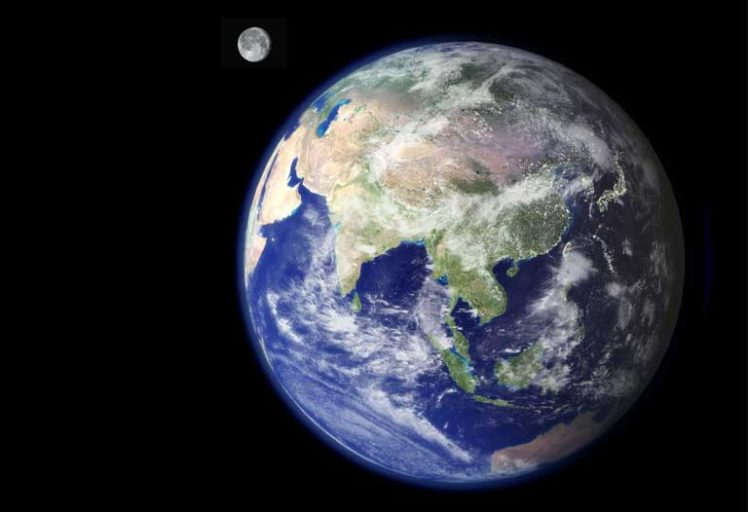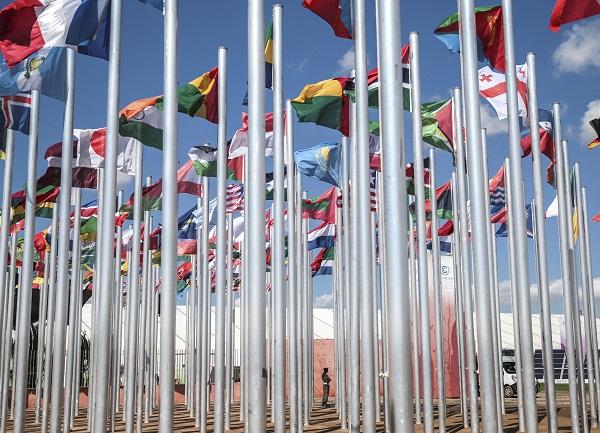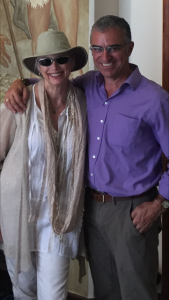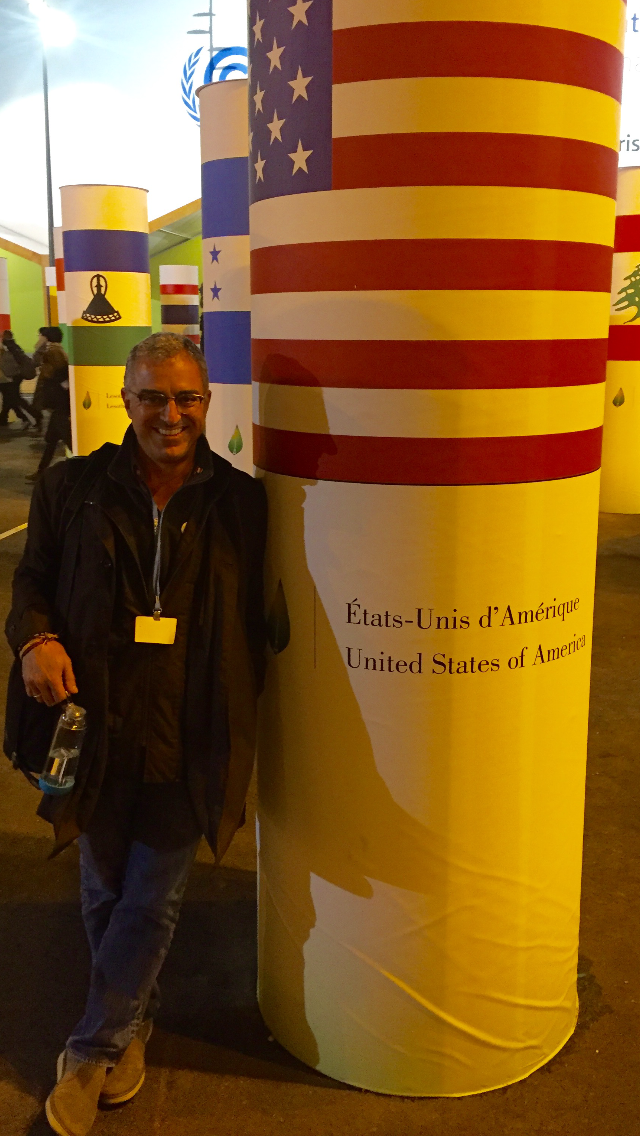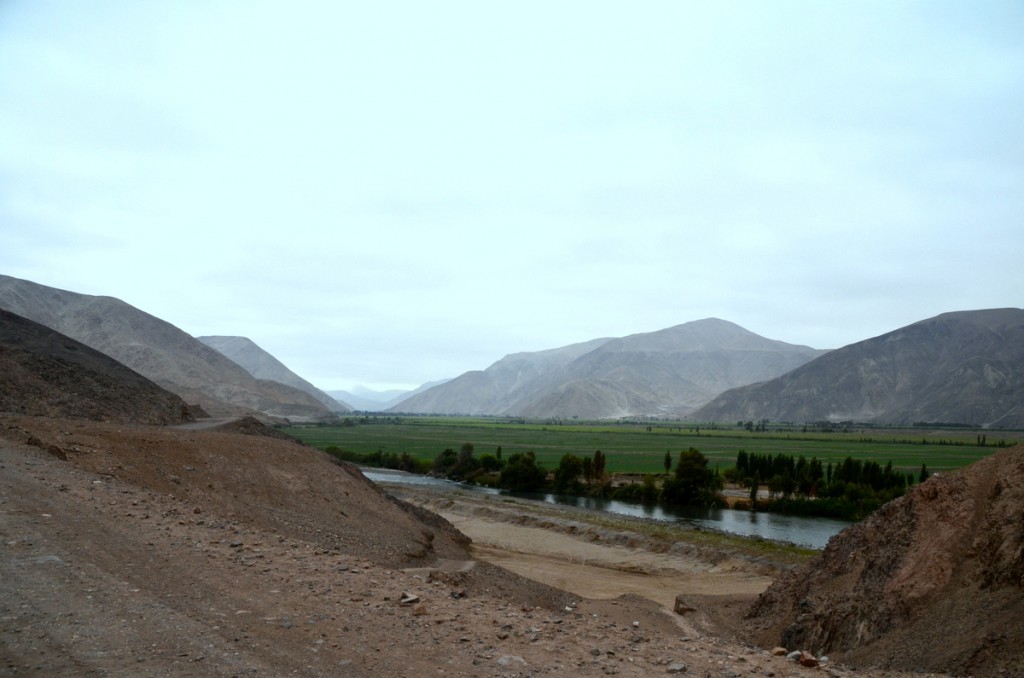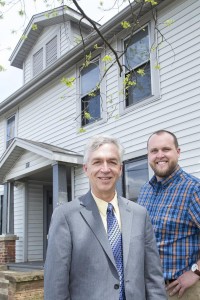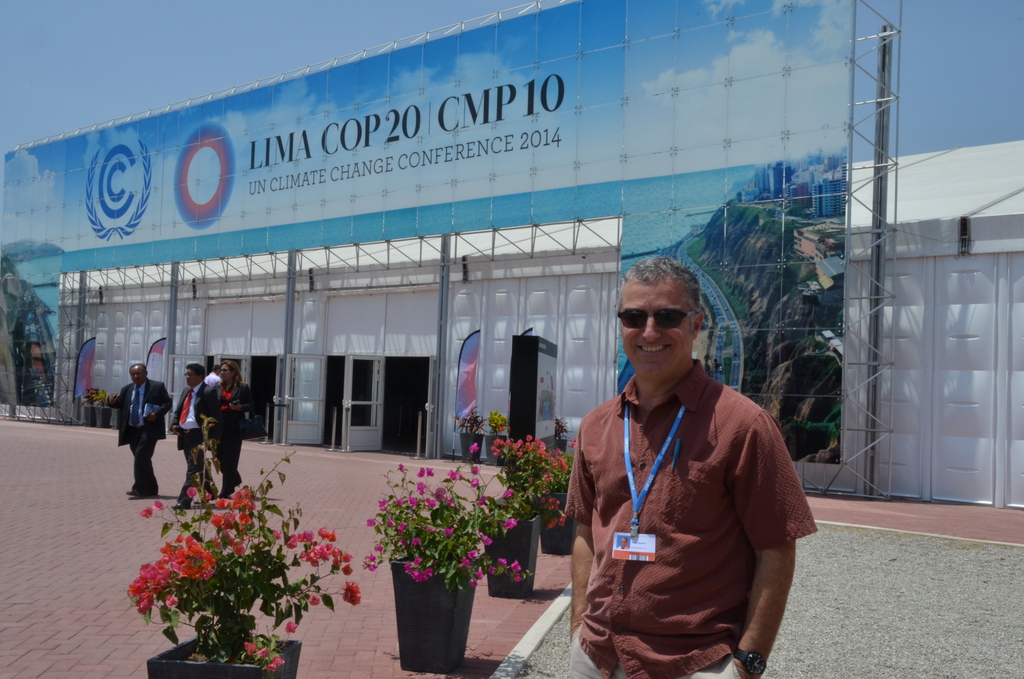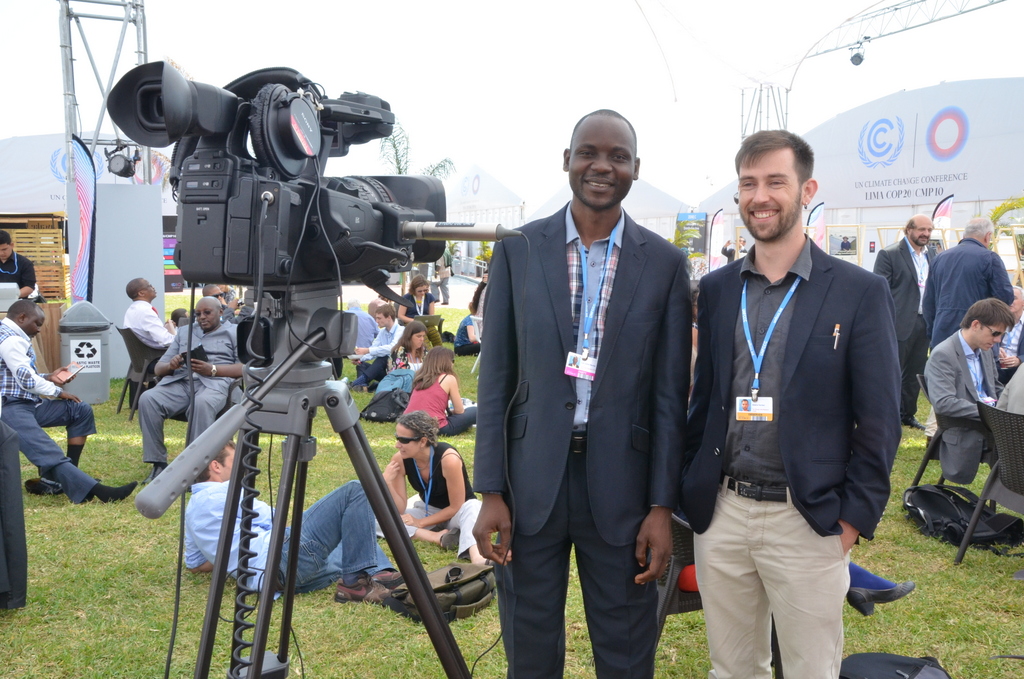
Joseph Zambo Mandea of the Democratic Republic of Congo, and Melaine Kermarc of France, both with the Woods Hole Research Center in Massachusetts, were among the climate change activists I met and interviewed at the COP20 – the UN climate summit in Lima, Peru. Photo by Justin Catanoso
From the WFDD web post Dec. 17, 2014 (Audio link is here) — A global summit to address climate change wrapped up in Peru last week. After 36 hours of overtime negotiations, a draft of the Lima Accords was presented–a plan which will change how countries deal with carbon emissions. Wake Forest journalism professor Justin Catanoso is a regular WFDD contributor and attended the UN Climate talks.
Catanoso reported that there was momentum and optimism ahead of the summit. He says that still remains today, with the Lima Accords, which is the first deal committing every country in the world to reducing their fossil fuel emissions.
“This represents a significant breakthrough in a 20-year effort by the UN to come up with some international accord to reduce greenhouse gas emissions,” says Catanoso.
But he adds that the strength of the accords is also its weakness. Each nation will set its own reduction levels and they likely won’t be held accountable by any governing body to guide that decision.
“If we don’t have that mandated amount, then we may not be able to keep global warming under 3.6 degrees Fahrenheit in the next 50-75 years,” says Catanoso. “That’s the point in which scientists say if we get warmer than that, things really spin out of control. The planet becomes increasingly uninhabitable.”
Every country has six months to report their intended cuts to the UN which would begin in 2020. It’s in advance of a meeting in Paris next year, where they will possibly sign binding agreements to cement greenhouse gas reductions.

